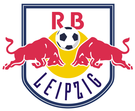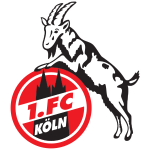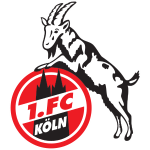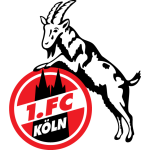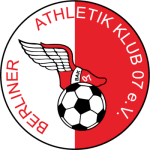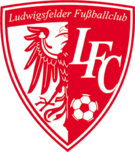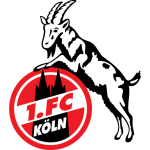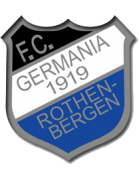Germany (League) - AI Football Predictions Online
| AI | ||
|---|---|---|
 U-19 Bundesliga U-19 Bundesliga | ||
| 2025-03-29 06:00 |
| |
| 2025-03-29 06:00 |
| |
| 2025-03-29 06:00 |
| |
| 2025-03-29 06:00 |
| |
| 2025-03-29 06:00 |
| |
| 2025-03-29 07:00 |
| |
| 2025-03-29 07:00 |
| |
| 2025-03-29 07:00 |
| |
| 2025-03-29 07:30 |
| |
| 2025-03-29 08:00 |
| |
| 2025-03-29 08:00 |
| |
| 2025-03-29 08:00 |
| |
| 2025-03-29 08:00 |
| |
| 2025-03-29 08:00 |
| |
| 2025-03-29 08:00 |
| |
| 2025-03-29 09:00 |
| |
| 2025-03-29 11:30 |
| |
| 2025-03-30 05:00 |
| |
| 2025-03-30 05:00 |
| |
| 2025-03-30 05:00 |
| |
| 2025-03-30 05:00 |
| |
| 2025-03-30 05:00 |
| |
| 2025-03-30 05:00 |
| |
| 2025-03-30 05:00 |
| |
| 2025-03-30 05:00 |
| |
| 2025-03-30 05:00 |
| |
| 2025-03-30 05:00 |
| |
| 2025-03-30 06:00 |
| |
| 2025-03-30 07:00 |
| |
| 2025-03-30 07:00 |
| |
| 2025-03-30 08:00 |
| |
| 2025-03-30 08:00 |
| |
| 2025-03-30 08:00 |
| |
| 2025-04-02 06:00 |
| |
| 2025-04-02 09:30 |
| |
| 2025-04-03 12:00 |
| |
| 2025-04-05 05:00 |
| |
| 2025-04-05 05:00 |
| |
| 2025-04-05 05:00 |
| |
| 2025-04-05 05:00 |
| |
| 2025-04-05 05:00 |
| |
| 2025-04-05 05:00 |
| |
| 2025-04-05 06:00 |
| |
| 2025-04-05 06:00 |
| |
| 2025-04-05 06:00 |
| |
| 2025-04-05 07:00 |
| |
| 2025-04-05 07:00 |
| |
| 2025-04-05 07:00 |
| |
| 2025-04-05 07:00 |
| |
| 2025-04-05 08:00 |
| |
| 2025-04-05 08:00 |
| |
| 2025-04-05 08:00 |
| |
| 2025-04-05 08:00 |
| |
| 2025-04-05 09:00 |
| |
| 2025-04-06 05:00 |
| |
| 2025-04-06 05:00 |
| |
| 2025-04-06 05:00 |
| |
| 2025-04-06 05:00 |
| |
| 2025-04-06 05:00 |
| |
| 2025-04-06 05:00 |
| |
| 2025-04-06 05:00 |
| |
| 2025-04-06 05:00 |
| |
| 2025-04-06 06:00 |
| |
| 2025-04-06 07:00 |
| |
| 2025-04-06 07:00 |
| |
| 2025-04-06 07:00 |
| |
| 2025-04-06 07:00 |
| |
| 2025-04-06 07:00 |
| |
| 2025-04-06 08:00 |
| |
| 2025-04-06 09:00 |
| |
| 2025-04-06 12:00 |
| |
| 2025-04-09 07:00 |
| |
| 2025-04-09 07:00 |
| |
 U17 Bundesliga U17 Bundesliga | ||
| 2025-03-29 06:00 |
| |
| 2025-03-29 06:00 |
| |
| 2025-03-29 06:00 |
| |
| 2025-03-29 06:00 |
| |
| 2025-03-29 06:00 |
| |
| 2025-03-29 06:00 |
| |
| 2025-03-29 06:00 |
| |
| 2025-03-29 07:00 |
| |
| 2025-03-29 08:00 |
| |
| 2025-03-29 08:00 |
| |
| 2025-03-29 08:00 |
| |
| 2025-03-29 08:00 |
| |
| 2025-03-29 08:00 |
| |
| 2025-03-29 08:00 |
| |
| 2025-03-29 08:00 |
| |
| 2025-03-29 08:00 |
| |
| 2025-03-29 08:00 |
| |
| 2025-03-29 09:00 |
| |
| 2025-03-29 09:00 |
| |
| 2025-03-29 09:00 |
| |
| 2025-03-29 10:00 |
| |
| 2025-03-29 10:00 |
| |
| 2025-03-30 05:00 |
| |
| 2025-03-30 05:00 |
| |
| 2025-03-30 05:00 |
| |
| 2025-03-30 05:00 |
| |
| 2025-03-30 05:00 |
| |
| 2025-03-30 05:00 |
| |
| 2025-03-30 05:00 |
| |
| 2025-03-30 05:00 |
| |
| 2025-03-30 05:00 |
| |
| 2025-03-30 07:00 |
| |
| 2025-03-30 07:00 |
| |
| 2025-03-30 08:00 |
| |
| 2025-03-30 08:00 |
| |
| 2025-04-02 12:00 |
| |
| 2025-04-02 12:00 |
| |
| 2025-04-02 12:30 |
| |
| 2025-04-02 13:00 |
| |
| 2025-04-02 13:00 |
| |
| 2025-04-04 11:00 |
| |
| 2025-04-05 05:00 |
| |
| 2025-04-05 05:00 |
| |
| 2025-04-05 05:00 |
| |
| 2025-04-05 05:00 |
| |
| 2025-04-05 05:00 |
| |
| 2025-04-05 06:00 |
| |
| 2025-04-05 06:00 |
| |
| 2025-04-05 06:00 |
| |
| 2025-04-05 06:00 |
| |
| 2025-04-05 07:00 |
| |
| 2025-04-05 07:00 |
| |
| 2025-04-05 07:00 |
| |
| 2025-04-05 07:00 |
| |
| 2025-04-05 07:00 |
| |
| 2025-04-05 07:00 |
| |
| 2025-04-05 08:00 |
| |
| 2025-04-05 08:00 |
| |
| 2025-04-05 08:00 |
| |
| 2025-04-05 10:00 |
| |
| 2025-04-06 05:00 |
| |
| 2025-04-06 05:00 |
| |
| 2025-04-06 05:00 |
| |
| 2025-04-06 05:00 |
| |
| 2025-04-06 05:00 |
| |
| 2025-04-06 05:00 |
| |
| 2025-04-06 05:00 |
| |
| 2025-04-06 05:00 |
| |
| 2025-04-06 05:00 |
| |
| 2025-04-06 06:00 |
| |
| 2025-04-06 07:00 |
| |
| 2025-04-06 08:00 |
| |
| 2025-04-06 08:00 |
| |
| 2025-04-06 08:00 |
| |
| 2025-04-08 12:30 |
| |
| 2025-04-09 09:00 |
| |
| 2025-04-09 11:00 |
| |
| 2025-04-09 11:30 |
| |
| 2025-04-09 12:00 |
| |
 Frauen Bundesliga Frauen Bundesliga | ||
| 2025-03-29 07:00 |
| |
| 2025-03-29 09:00 |
| |
| 2025-03-30 08:00 |
| |
| 2025-03-30 09:15 |
| |
| 2025-03-30 12:30 |
| |
| 2025-04-11 12:30 |
| |
 2. Bundesliga 2. Bundesliga | ||
| 2025-03-29 08:00 |
| |
| 2025-03-29 08:00 |
| |
| 2025-03-29 08:00 |
| |
| 2025-03-29 15:30 |
| |
| 2025-03-30 07:30 |
| |
| 2025-03-30 07:30 |
| |
| 2025-03-30 07:30 |
| |
| 2025-04-04 12:30 |
| |
| 2025-04-04 12:30 |
| |
| 2025-04-05 07:00 |
| |
| 2025-04-05 07:00 |
| |
| 2025-04-05 07:00 |
| |
| 2025-04-05 14:30 |
| |
| 2025-04-06 07:30 |
| |
| 2025-04-06 07:30 |
| |
| 2025-04-06 07:30 |
| |
| 2025-04-11 12:30 |
| |
| 2025-04-11 12:30 |
| |
 Germany: Oberliga: Bremen Germany: Oberliga: Bremen | ||
| 2025-03-29 08:00 |
| |
| 2025-03-29 09:00 |
| |
| 2025-03-29 09:00 |
| |
| 2025-03-29 10:00 |
| |
| 2025-03-29 10:00 |
| |
| 2025-03-30 08:00 |
| |
| 2025-03-30 09:00 |
| |
| 2025-03-30 09:30 |
| |
| 2025-04-04 13:30 |
| |
| 2025-04-05 08:00 |
| |
| 2025-04-05 08:00 |
| |
| 2025-04-05 08:00 |
| |
| 2025-04-05 08:00 |
| |
| 2025-04-06 05:00 |
| |
| 2025-04-06 07:30 |
| |
| 2025-04-06 09:00 |
| |
| 2025-04-11 13:00 |
| |
 Germany: Oberliga: Schleswig-Holstein Germany: Oberliga: Schleswig-Holstein | ||
| 2025-03-29 08:00 |
| |
| 2025-03-29 09:00 |
| |
| 2025-03-29 09:30 |
| |
| 2025-03-29 10:00 |
| |
| 2025-03-30 08:00 |
| |
| 2025-03-30 08:00 |
| |
| 2025-03-30 09:00 |
| |
| 2025-04-04 13:30 |
| |
| 2025-04-05 06:30 |
| |
| 2025-04-05 08:00 |
| |
| 2025-04-05 08:00 |
| |
| 2025-04-05 08:00 |
| |
| 2025-04-05 09:00 |
| |
| 2025-04-05 09:30 |
| |
| 2025-04-05 10:00 |
| |
| 2025-04-09 12:15 |
| |
| 2025-04-11 13:30 |
| |
 Germany: Regionalliga: Nord Germany: Regionalliga: Nord | ||
| 2025-03-29 08:00 |
| |
| 2025-03-29 09:00 |
| |
| 2025-03-29 11:00 |
| |
| 2025-03-30 08:00 |
| |
| 2025-03-30 08:00 |
| |
| 2025-03-30 09:00 |
| |
| 2025-04-02 11:00 |
| |
| 2025-04-02 13:00 |
| |
| 2025-04-04 12:30 |
| |
| 2025-04-05 08:00 |
| |
| 2025-04-05 10:00 |
| |
| 2025-04-06 07:30 |
| |
| 2025-04-06 08:00 |
| |
| 2025-04-06 08:00 |
| |
| 2025-04-06 08:00 |
| |
| 2025-04-06 08:00 |
| |
| 2025-04-06 09:00 |
| |
| 2025-04-11 13:00 |
| |
 Germany: Regionalliga: Nordost Germany: Regionalliga: Nordost | ||
| 2025-03-29 08:00 |
| |
| 2025-03-29 08:00 |
| |
| 2025-03-29 11:00 |
| |
| 2025-03-30 07:00 |
| |
| 2025-03-30 07:00 |
| |
| 2025-03-30 07:00 |
| |
| 2025-04-01 13:00 |
| |
| 2025-04-02 13:00 |
| |
| 2025-04-04 13:00 |
| |
| 2025-04-04 13:00 |
| |
| 2025-04-04 14:20 |
| |
| 2025-04-05 07:00 |
| |
| 2025-04-05 07:00 |
| |
| 2025-04-05 08:00 |
| |
| 2025-04-06 07:00 |
| |
| 2025-04-06 07:00 |
| |
| 2025-04-06 08:00 |
| |
| 2025-04-08 13:00 |
| |
| 2025-04-09 13:00 |
| |
| 2025-04-09 13:00 |
| |
| 2025-04-09 13:00 |
| |
| 2025-04-11 13:00 |
| |
 3. Liga 3. Liga | ||
| 2025-03-29 09:00 |
| |
| 2025-03-29 09:00 |
| |
| 2025-03-29 09:00 |
| |
| 2025-03-29 09:00 |
| |
| 2025-03-29 09:00 |
| |
| 2025-03-29 11:30 |
| |
| 2025-03-30 07:30 |
| |
| 2025-03-30 10:30 |
| |
| 2025-03-30 13:30 |
| |
| 2025-04-04 13:00 |
| |
| 2025-04-05 08:00 |
| |
| 2025-04-05 08:00 |
| |
| 2025-04-05 08:00 |
| |
| 2025-04-05 08:00 |
| |
| 2025-04-05 08:00 |
| |
| 2025-04-05 10:30 |
| |
| 2025-04-06 07:30 |
| |
| 2025-04-06 10:30 |
| |
| 2025-04-06 13:30 |
| |
| 2025-04-08 13:00 |
| |
| 2025-04-08 13:00 |
| |
| 2025-04-08 13:00 |
| |
| 2025-04-08 13:00 |
| |
| 2025-04-08 13:00 |
| |
| 2025-04-09 13:00 |
| |
| 2025-04-09 13:00 |
| |
| 2025-04-09 13:00 |
| |
| 2025-04-09 13:00 |
| |
| 2025-04-09 13:00 |
| |
| 2025-04-11 13:00 |
| |
 Germany: Oberliga: Bayern Nord Germany: Oberliga: Bayern Nord | ||
| 2025-03-29 09:00 |
| |
| 2025-03-29 09:00 |
| |
| 2025-03-29 09:00 |
| |
| 2025-03-29 09:00 |
| |
| 2025-03-29 10:00 |
| |
| 2025-03-29 11:00 |
| |
| 2025-04-04 13:00 |
| |
| 2025-04-04 13:00 |
| |
| 2025-04-05 08:00 |
| |
| 2025-04-05 09:00 |
| |
| 2025-04-05 09:00 |
| |
| 2025-04-05 09:00 |
| |
| 2025-04-05 10:00 |
| |
| 2025-04-05 10:00 |
| |
| 2025-04-06 09:00 |
| |
| 2025-04-11 13:00 |
| |
| 2025-04-11 13:00 |
| |
 Germany: Oberliga: Bayern Süd Germany: Oberliga: Bayern Süd | ||
| 2025-03-29 09:00 |
| |
| 2025-03-29 09:00 |
| |
| 2025-03-29 09:00 |
| |
| 2025-03-29 09:00 |
| |
| 2025-03-29 09:00 |
| |
| 2025-03-29 10:00 |
| |
| 2025-03-29 10:00 |
| |
| 2025-04-04 13:30 |
| |
| 2025-04-05 08:00 |
| |
| 2025-04-05 08:00 |
| |
| 2025-04-05 08:00 |
| |
| 2025-04-05 09:00 |
| |
| 2025-04-05 09:30 |
| |
| 2025-04-06 09:00 |
| |
| 2025-04-08 12:00 |
| |
| 2025-04-11 12:00 |
| |
| 2025-04-11 13:00 |
| |
| 2025-04-11 13:00 |
| |
| 2025-04-11 13:00 |
| |
| 2025-04-11 13:30 |
| |
 Germany: Oberliga: Hamburg Germany: Oberliga: Hamburg | ||
| 2025-03-29 09:00 |
| |
| 2025-03-29 10:30 |
| |
| 2025-03-30 04:45 |
| |
| 2025-03-30 08:00 |
| |
| 2025-04-01 13:30 |
| |
| 2025-04-04 13:00 |
| |
| 2025-04-04 13:30 |
| |
| 2025-04-04 14:00 |
| |
| 2025-04-04 14:15 |
| |
| 2025-04-05 08:00 |
| |
| 2025-04-05 09:00 |
| |
| 2025-04-06 04:45 |
| |
| 2025-04-06 08:00 |
| |
| 2025-04-06 09:00 |
| |
| 2025-04-08 13:00 |
| |
| 2025-04-11 13:30 |
| |
| 2025-04-11 13:30 |
| |
| 2025-04-11 13:30 |
| |
 Germany: Oberliga: Hessen Germany: Oberliga: Hessen | ||
| 2025-03-29 09:00 |
| |
| 2025-03-29 09:30 |
| |
| 2025-03-29 10:00 |
| |
| 2025-03-29 10:00 |
| |
| 2025-03-29 10:00 |
| |
| 2025-03-29 10:30 |
| |
| 2025-03-30 09:00 |
| |
| 2025-03-30 09:00 |
| |
| 2025-04-01 13:30 |
| |
| 2025-04-02 13:30 |
| |
| 2025-04-05 08:00 |
| |
| 2025-04-05 09:00 |
| |
| 2025-04-05 09:30 |
| |
| 2025-04-05 09:30 |
| |
| 2025-04-06 08:30 |
| |
| 2025-04-06 09:00 |
| |
| 2025-04-06 09:00 |
| |
| 2025-04-06 09:00 |
| |
| 2025-04-06 09:30 |
| |
| 2025-04-11 14:00 |
| |
 Germany: Oberliga: Niedersachsen Germany: Oberliga: Niedersachsen | ||
| 2025-03-29 09:00 |
| |
| 2025-03-30 09:00 |
| |
| 2025-03-30 09:00 |
| |
| 2025-03-30 09:00 |
| |
| 2025-03-30 09:00 |
| |
| 2025-03-30 09:00 |
| |
| 2025-03-30 09:00 |
| |
| 2025-03-30 09:00 |
| |
| 2025-04-02 12:30 |
| |
| 2025-04-02 12:30 |
| |
| 2025-04-02 12:30 |
| |
| 2025-04-02 13:30 |
| |
| 2025-04-05 08:00 |
| |
| 2025-04-05 08:00 |
| |
| 2025-04-05 10:00 |
| |
| 2025-04-06 09:00 |
| |
| 2025-04-06 09:00 |
| |
| 2025-04-06 09:00 |
| |
| 2025-04-06 09:00 |
| |
| 2025-04-06 09:00 |
| |
| 2025-04-06 09:00 |
| |
| 2025-04-09 12:00 |
| |
| 2025-04-11 13:30 |
| |
| 2025-04-11 14:00 |
| |
 Germany: Oberliga: Nordost-Nord Germany: Oberliga: Nordost-Nord | ||
| 2025-03-29 09:00 |
| |
| 2025-03-30 07:30 |
| |
| 2025-03-30 08:00 |
| |
| 2025-03-30 08:00 |
| |
| 2025-03-30 08:00 |
| |
| 2025-03-30 08:00 |
| |
| 2025-03-30 08:00 |
| |
| 2025-04-04 13:30 |
| |
| 2025-04-04 13:30 |
| |
| 2025-04-05 07:00 |
| |
| 2025-04-05 09:00 |
| |
| 2025-04-06 06:00 |
| |
| 2025-04-06 08:00 |
| |
| 2025-04-06 08:00 |
| |
| 2025-04-06 08:00 |
| |
| 2025-04-11 13:00 |
| |
 Germany: Oberliga: Nordost-Süd Germany: Oberliga: Nordost-Süd | ||
| 2025-03-29 09:00 |
| |
| 2025-03-29 09:00 |
| |
| 2025-03-29 09:00 |
| |
| 2025-03-29 09:00 |
| |
| 2025-03-29 09:00 |
| |
| 2025-03-29 09:00 |
| |
| 2025-03-29 09:00 |
| |
| 2025-03-30 08:00 |
| |
| 2025-04-01 11:45 |
| |
| 2025-04-02 13:00 |
| |
| 2025-04-05 08:00 |
| |
| 2025-04-05 08:00 |
| |
| 2025-04-05 08:00 |
| |
| 2025-04-05 08:00 |
| |
| 2025-04-06 08:00 |
| |
| 2025-04-06 08:00 |
| |
| 2025-04-06 08:00 |
| |
| 2025-04-06 08:00 |
| |
| 2025-04-11 12:30 |
| |
 Germany: Oberliga: Rheinland-Pfalz/Saar Germany: Oberliga: Rheinland-Pfalz/Saar | ||
| 2025-03-29 09:00 |
| |
| 2025-03-29 09:00 |
| |
| 2025-03-29 09:00 |
| |
| 2025-03-29 10:00 |
| |
| 2025-03-29 10:00 |
| |
| 2025-03-29 10:00 |
| |
| 2025-03-29 10:30 |
| |
| 2025-03-29 10:30 |
| |
| 2025-03-30 09:30 |
| |
| 2025-04-04 13:00 |
| |
| 2025-04-05 07:00 |
| |
| 2025-04-05 08:00 |
| |
| 2025-04-05 09:00 |
| |
| 2025-04-05 09:30 |
| |
| 2025-04-05 09:30 |
| |
| 2025-04-05 09:30 |
| |
| 2025-04-05 09:30 |
| |
| 2025-04-05 10:00 |
| |
| 2025-04-09 13:30 |
| |
 Germany: Regionalliga: Bayern Germany: Regionalliga: Bayern | ||
| 2025-03-29 09:00 |
| |
| 2025-03-29 09:00 |
| |
| 2025-03-29 09:00 |
| |
| 2025-03-29 09:00 |
| |
| 2025-03-29 09:00 |
| |
| 2025-03-29 09:00 |
| |
| 2025-03-29 09:00 |
| |
| 2025-04-01 11:45 |
| |
| 2025-04-04 11:30 |
| |
| 2025-04-04 13:00 |
| |
| 2025-04-04 13:00 |
| |
| 2025-04-05 08:00 |
| |
| 2025-04-05 08:00 |
| |
| 2025-04-05 08:00 |
| |
| 2025-04-05 08:00 |
| |
| 2025-04-05 08:00 |
| |
| 2025-04-05 08:00 |
| |
| 2025-04-05 08:00 |
| |
| 2025-04-08 12:00 |
| |
| 2025-04-08 12:00 |
| |
| 2025-04-11 12:30 |
| |
| 2025-04-11 13:00 |
| |
| 2025-04-11 13:00 |
| |
| 2025-04-11 13:00 |
| |
 Germany: Regionalliga: Südwest Germany: Regionalliga: Südwest | ||
| 2025-03-29 09:00 |
| |
| 2025-03-29 09:00 |
| |
| 2025-03-29 09:00 |
| |
| 2025-03-29 09:00 |
| |
| 2025-03-29 09:00 |
| |
| 2025-03-29 09:00 |
| |
| 2025-03-29 09:00 |
| |
| 2025-03-30 08:00 |
| |
| 2025-04-01 13:00 |
| |
| 2025-04-01 13:00 |
| |
| 2025-04-01 13:00 |
| |
| 2025-04-01 13:00 |
| |
| 2025-04-01 13:00 |
| |
| 2025-04-01 13:00 |
| |
| 2025-04-02 13:00 |
| |
| 2025-04-02 13:00 |
| |
| 2025-04-05 08:00 |
| |
| 2025-04-05 08:00 |
| |
| 2025-04-05 08:00 |
| |
| 2025-04-05 08:00 |
| |
| 2025-04-05 08:00 |
| |
| 2025-04-05 08:00 |
| |
| 2025-04-05 08:00 |
| |
| 2025-04-06 08:00 |
| |
| 2025-04-06 08:00 |
| |
| 2025-04-09 13:00 |
| |
| 2025-04-11 13:00 |
| |
| 2025-04-11 13:00 |
| |
| 2025-04-11 13:00 |
| |
 Germany: Regionalliga: West Germany: Regionalliga: West | ||
| 2025-03-29 09:00 |
| |
| 2025-03-29 09:00 |
| |
| 2025-03-29 09:00 |
| |
| 2025-03-29 09:00 |
| |
| 2025-03-29 09:00 |
| |
| 2025-03-29 09:00 |
| |
| 2025-03-29 09:00 |
| |
| 2025-04-04 13:30 |
| |
| 2025-04-04 13:30 |
| |
| 2025-04-04 13:30 |
| |
| 2025-04-05 08:00 |
| |
| 2025-04-05 08:00 |
| |
| 2025-04-05 08:00 |
| |
| 2025-04-05 08:00 |
| |
| 2025-04-05 10:00 |
| |
| 2025-04-11 13:30 |
| |
| 2025-04-11 13:30 |
| |
 Germany: Oberliga: Baden-Wurttemberg Germany: Oberliga: Baden-Wurttemberg | ||
| 2025-03-29 10:00 |
| |
| 2025-03-29 10:00 |
| |
| 2025-03-29 10:00 |
| |
| 2025-03-29 10:00 |
| |
| 2025-03-29 10:30 |
| |
| 2025-03-30 09:00 |
| |
| 2025-04-02 13:00 |
| |
| 2025-04-05 08:00 |
| |
| 2025-04-05 08:00 |
| |
| 2025-04-05 08:00 |
| |
| 2025-04-05 09:00 |
| |
| 2025-04-05 09:00 |
| |
| 2025-04-05 09:00 |
| |
| 2025-04-05 09:30 |
| |
| 2025-04-05 09:30 |
| |
| 2025-04-06 08:00 |
| |
 Bundesliga Bundesliga | ||
| 2025-03-29 10:30 |
| |
| 2025-03-29 10:30 |
| |
| 2025-03-29 10:30 |
| |
| 2025-03-29 10:30 |
| |
| 2025-03-29 10:30 |
| |
| 2025-03-29 13:30 |
| |
| 2025-03-30 09:30 |
| |
| 2025-03-30 11:30 |
| |
| 2025-04-04 14:30 |
| |
| 2025-04-05 09:30 |
| |
| 2025-04-05 09:30 |
| |
| 2025-04-05 09:30 |
| |
| 2025-04-05 09:30 |
| |
| 2025-04-05 09:30 |
| |
| 2025-04-05 12:30 |
| |
| 2025-04-06 09:30 |
| |
| 2025-04-06 11:30 |
| |
| 2025-04-11 14:30 |
| |
 Germany: Oberliga: Westfalen Germany: Oberliga: Westfalen | ||
| 2025-03-29 11:00 |
| |
| 2025-03-30 09:00 |
| |
| 2025-03-30 09:00 |
| |
| 2025-03-30 09:00 |
| |
| 2025-03-30 09:00 |
| |
| 2025-03-30 09:00 |
| |
| 2025-03-30 09:30 |
| |
| 2025-04-01 13:00 |
| |
| 2025-04-02 12:00 |
| |
| 2025-04-02 13:00 |
| |
| 2025-04-04 13:30 |
| |
| 2025-04-06 08:30 |
| |
| 2025-04-06 09:00 |
| |
| 2025-04-06 09:00 |
| |
| 2025-04-06 09:00 |
| |
| 2025-04-06 09:00 |
| |
| 2025-04-06 09:15 |
| |
| 2025-04-06 09:30 |
| |
| 2025-04-06 10:00 |
| |
| 2025-04-09 13:30 |
| |
| 2025-04-09 14:00 |
| |
 2. Bundesliga Women 2. Bundesliga Women | ||
| 2025-03-30 05:00 |
| |
| 2025-03-30 05:00 |
| |
| 2025-03-30 05:00 |
| |
| 2025-03-30 08:00 |
| |
| 2025-03-30 08:00 |
| |
| 2025-03-30 08:00 |
| |
| 2025-03-30 08:00 |
| |
 Germany: Oberliga: Mittelrhein Germany: Oberliga: Mittelrhein | ||
| 2025-03-30 09:00 |
| |
| 2025-03-30 09:00 |
| |
| 2025-03-30 09:00 |
| |
| 2025-03-30 09:00 |
| |
| 2025-03-30 09:15 |
| |
| 2025-03-30 09:15 |
| |
| 2025-03-30 09:30 |
| |
| 2025-03-30 09:30 |
| |
| 2025-04-04 14:00 |
| |
| 2025-04-06 09:00 |
| |
| 2025-04-06 09:15 |
| |
| 2025-04-06 09:15 |
| |
| 2025-04-06 09:15 |
| |
| 2025-04-06 09:15 |
| |
| 2025-04-06 09:30 |
| |
| 2025-04-06 09:45 |
| |
| 2025-04-11 14:00 |
| |
 Germany: Oberliga: Niederrhein Germany: Oberliga: Niederrhein | ||
| 2025-03-30 09:00 |
| |
| 2025-03-30 09:00 |
| |
| 2025-03-30 09:00 |
| |
| 2025-03-30 09:00 |
| |
| 2025-03-30 09:15 |
| |
| 2025-03-30 09:30 |
| |
| 2025-03-30 09:30 |
| |
| 2025-04-05 12:00 |
| |
| 2025-04-06 09:00 |
| |
| 2025-04-06 09:00 |
| |
| 2025-04-06 09:00 |
| |
| 2025-04-06 09:00 |
| |
| 2025-04-06 09:15 |
| |
| 2025-04-06 09:30 |
| |
| 2025-04-06 09:30 |
| |
| 2025-04-06 09:45 |
| |
| 2025-04-11 13:30 |
| |
| 2025-04-11 13:30 |
| |
 DFB Pokal DFB Pokal | ||
| 2025-04-01 14:45 |
| |
| 2025-04-02 14:45 |
| |
The Essence of German Football: A Deep Dive into the Bundesliga
German football is often synonymous with passion, precision, and a unique blend of tactical awareness and vibrant fan culture. At the heart of this footballing phenomenon lies the Bundesliga, Germany's premier football league. Established in 1963, the Bundesliga has become a staple of not just German sport but also a significant player on the global football stage. With its rich history, intense rivalries, and an unwavering commitment to youth development, the Bundesliga encapsulates what makes German football so compelling.
The Historical Roots of the Bundesliga
The origins of the Bundesliga can be traced back to the post-World War II era when German football was fragmented into regional leagues. The pressing need for a unified structure led to the establishment of the Bundesliga as the national league in 1963. The inaugural season saw 16 clubs compete, with 1. FC Köln emerging as the first champion. This league not only provided a platform for clubs to showcase their talents but also set the stage for the development of an organized football structure in Germany.
Over the years, the Bundesliga has witnessed remarkable transformations. The introduction of professional contracts in the 1970s and the subsequent influx of international talent in the 1990s elevated the league's status. Clubs like Bayern Munich, Borussia Dortmund, and Hamburger SV became household names, not just in Germany but across Europe. Bayern Munich, in particular, has dominated the league, clinching numerous titles and establishing a reputation as one of the world’s most successful football clubs.
The Passionate Fan Culture
One of the defining characteristics of the Bundesliga is its vibrant fan culture. Each stadium pulsates with energy, as supporters create an electrifying atmosphere that is unmatched in many other leagues. The famous 'Südtribüne' at Borussia Dortmund’s Signal Iduna Park is a testament to this fervor, often referred to as the "Yellow Wall." This standing terrace, accommodating over 25,000 fans, provides a surreal experience on match days, where chants resonate throughout the stadium, creating a sense of unity and belonging among supporters.
Moreover, the Bundesliga prides itself on its affordability. Ticket prices are among the lowest in Europe, ensuring that fans from all walks of life can attend matches. This commitment to accessibility fosters a deep connection between clubs and their communities, making football a central aspect of German culture. The league's notable '50+1 rule,' which ensures that clubs are majority-owned by their members, further strengthens this bond, as fans have a genuine say in the direction of their clubs.
The Tactical Evolution of Bundesliga Football
When it comes to the tactical nuances of the Bundesliga, the league is known for its fast-paced and attacking style of play. Coaches such as Jürgen Klopp and Julian Nagelsmann have revolutionized the way football is perceived, emphasizing high pressing, fluid attacking movements, and youth integration. Under Klopp, Borussia Dortmund achieved remarkable success, winning two Bundesliga titles and reaching the UEFA Champions League final in 2013, showcasing the effectiveness of his gegenpressing philosophy.
The introduction of innovative training methods and a focus on analytics has further enhanced the tactical landscape of the league. Clubs like RB Leipzig have made headlines for their emphasis on data-driven decision-making, leading to a rapid rise in performance levels. This tactical evolution has not only made matches more exciting but has also raised the overall standard of football in Germany, producing players that are technically astute and tactically versatile.
The Rise of Youth Development and Talent Production
One of the most commendable aspects of the Bundesliga is its commitment to youth development. The league has become a breeding ground for young talents, with clubs investing heavily in academies. The success of players like Jadon Sancho, Kai Havertz, and Jamal Musiala is a testament to this focus on nurturing homegrown talent. Clubs such as Borussia Dortmund and Bayern Munich have been particularly effective in integrating young players into their first teams, often allowing them to shine on the biggest stages.
The Bundesliga's emphasis on youth development is further reflected in its competitive nature. With a relatively level playing field compared to other top European leagues, clubs like SC Freiburg and Eintracht Frankfurt have made significant strides by promoting young talents. This environment not only enhances the overall quality of the league but also provides fans with the opportunity to watch future stars emerge before their very eyes.
The Global Impact of the Bundesliga
As the Bundesliga continues to evolve, its influence on global football cannot be overlooked. The league has expanded its reach through international broadcasting partnerships, allowing fans worldwide to engage with German football. The success of clubs in European competitions, particularly Bayern Munich's triumphs in the Champions League, has elevated the league's profile and attracted international talent eager to make their mark in one of the most competitive environments in football.
Moreover, the Bundesliga's philosophy of prioritizing fan engagement, community involvement, and sustainable growth serves as a model for leagues around the world. The league's ability to blend tradition with innovation is a significant factor in its ongoing success, ensuring that German football remains an integral part of the global football narrative.
In summary, the Bundesliga is more than just a football league; it is a cultural phenomenon that embodies the spirit of German football. From its rich history and passionate fan culture to its tactical innovations and commitment to youth development, the Bundesliga continues to captivate hearts and minds both domestically and internationally. As the league propels into the future, it remains a beacon of excellence in the world of football, promising thrilling matches, emerging talents, and unforgettable moments for fans across the globe.
 English
English  Español
Español  Italiano
Italiano  Deutsch
Deutsch  Polski
Polski  Português
Português  Français
Français  Nederlands
Nederlands  Svenska
Svenska  Türkçe
Türkçe  Hrvatski
Hrvatski 




































